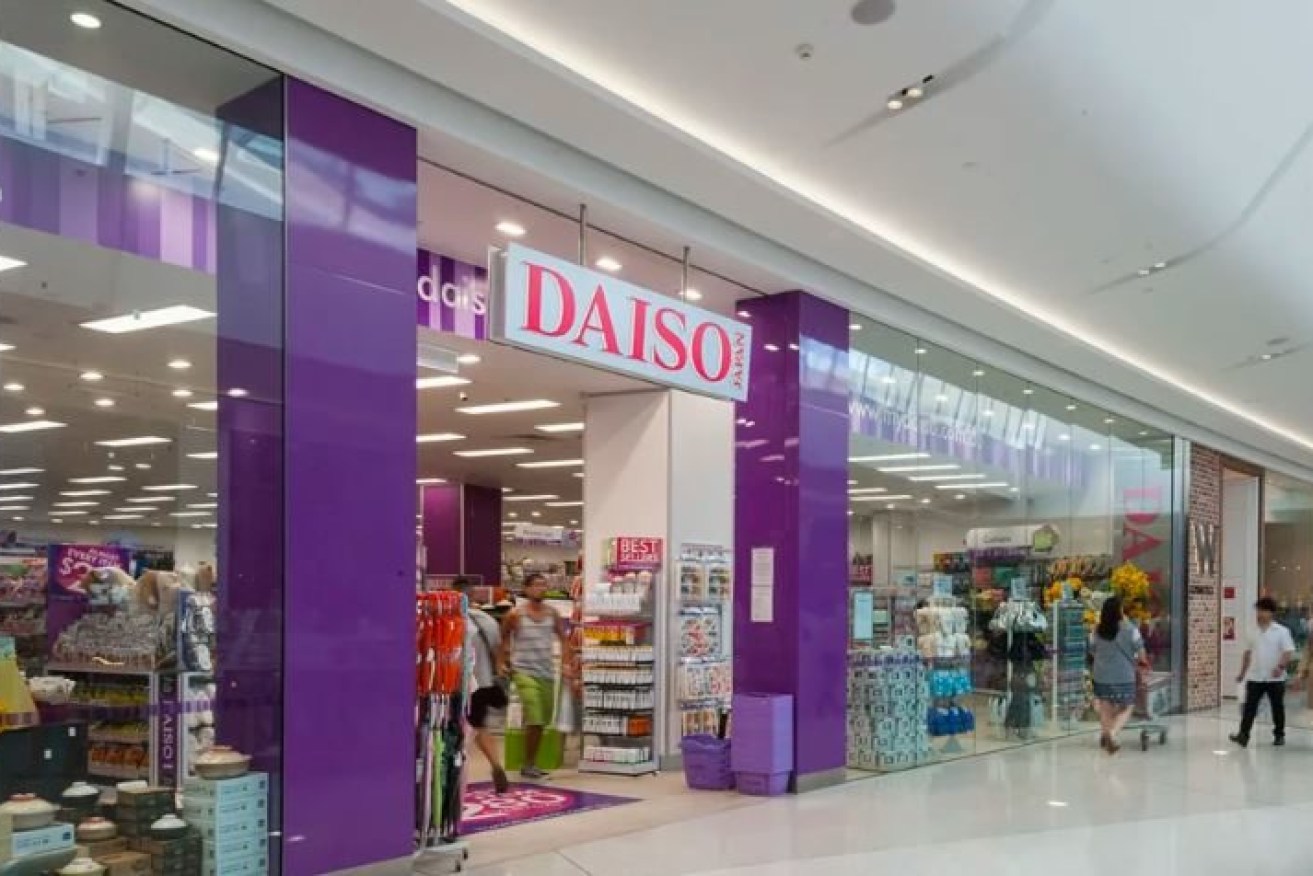Inside Daiso: The cult Japanese store where (almost) everything is $2.80


Japanese discount store Daiso has won fans in Australia, but there's a dark side to it. Photo: Simone Mitchell
Blink and you’ll miss it.
At the top of unassuming escalators all around the country is a magical mystery world of kooky items and untapped bargains, often hidden from the direct view of passers-by. Welcome to Daiso.
Described as a “variety wonderland”, the Japanese store that made a name for itself with its wild array of items costing just 100 yen arrived in Australia in 2009.
Today there are 37 stores across the country stocking more than 12,000 lines. Almost everything in the store costs $2.80.
And when we say “wild array of items” we mean it.
It’s kind of like The Reject Shop but with the Japanese kawaii (“cute”) factor.
Within the broad categories of food, beauty, stationery, kitchen and home organisation you will find things like:
- A coin purse depicting a dog giving some serious side-eye
- A cloth toilet seat cover
- Decorative shoe clips
- Special pants to support your pelvic floor
- A kitchen sponge that looks like a slice of bread with eyes
- Items with head-scratching mottos written on them
- A dedicated clip to squeeze your toothpaste from the tube
The secret to success
Aside from the kitsch, there are also some genuinely excellent bargains.
The range of Japanese ceramics, crockery and table runners are fabulous.
As are the stationery, bento-style lunchboxes, home organisation items, refillable travel bottles and Japanese food items (the dried mango and Japanese sodas are particularly popular).
The secret to Daiso’s success is that it has made shopping “fun”.
The stores have revolving inventory, so there is always something new to discover.
This promotes repeat business (and encourages customers to buy now, as it may not be here next week), and turns the shopping experience into something of a treasure hunt – similar to the way Aldi does with its ever-changing Special Buys offerings.
Daiso’s dark side
While you’re initially dazzled by the quirky and cute, it does become depressing looking at the fast array of novelty plastic that will likely end up in landfill a short time after purchase.
The huge collection of disposable plastic cutlery and straws feels a bit off in 2019. Japan is not a country known for its responsible use of plastics. It is the fifth-highest producer of plastic litter in the world.
As economist Takuro Morinaga told Japan Today: “Something in the Japanese character seems to favour dollar shops … the Japanese like new things … new and clean. They’re comfortable with throwing things out after use.”
The disposable chopsticks known as waribashi are a prime example of what he calls Japan’s “waribashi culture.”
Daiso also delivers items at a low price point by ordering from low-wage factories in developing countries.
While many people think all the items are made in Japan, China is a heavy contributor to the line-up. Wondering what the working conditions in these factories is like also takes some of the sheen off the experience.
Daiso has also been rapt over the knuckles for failing to comply with Australian mandatory consumer safety standards and information standards.
Last year the operator of six Daiso franchise stores in Melbourne was fined $355,000 over thousands of products that were deemed unsafe by Consumer Affairs Victoria.
Legal action against Origo & Co Pty Ltd (trading as Daiso) commenced in 2017 after more than 15,295 products were investigated including projectile toys that posed a risk to eye and face injuries; toys for children under the age of three that could pose a choking hazard; and elastic luggage straps, sunglasses and cosmetics with incorrect or insufficient labelling.
The court found Origo also engaged in misleading and deceptive conduct in 2011 by stocking sunscreen products that did not comply with the correct labelling and advertising requirements.
In December 2017, Daiso Industries (Australia) Pty Ltd (a business that is not related to Origo) was fined $1 million by the Federal Court in relation to the sale of unsafe products in Victoria, New South Wales and Queensland.
They were forced to recall 165 products in Australia.
Despite all this, Daiso stores are going strong.
I for one am guilty of purchasing that purse with the sulky dog’s face on it, and Daison is steadily expanding into new locations throughout Australia.
As one fan on the OzBargain forum so eloquently explained the popularity, “Where else do you have the convenience of buying a space bag, teapot, fake eyelashes and a packet of Japanese chips for $2.80 each in the same shop?”















